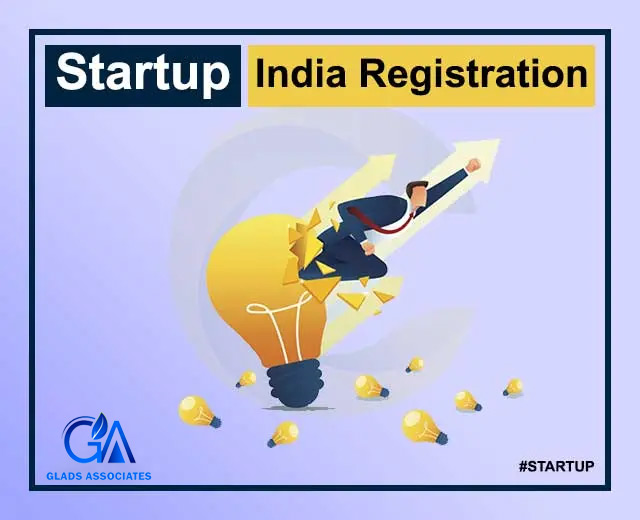Startup India Scheme
The Startup India campaign is a welcome initiative to boost entrepreneurship in India. It promotes bank financing, simplifies the incorporation process and grants exemptions to startups. But, you need to qualify as an “Eligible Startup” to avail all these benefits.
Talk To Our Experts
GET STARTED AT
Startup India Scheme
Startup India is an initiative of the government of India which aims to encourage the development and innovation of products and services and the creation of new employment opportunities throughout the country. The scheme aims to simplify the registration process of startups in India by reducing regulatory burdens and allowing startups to focus on their core businesses while maintaining low compliance costs. In addition to the massive networking opportunities provided by the bi-annual startup festivals organized by the Government of India both internally and internationally, the scheme offers multiple benefits.

Benefits of Startup India Scheme
Income Tax Benefits
Startup companies are now eligible for an income tax exemption for a period of three years after the date of incorporation provided that they are certified as such by the Inter-Ministerial Board of Certification. Also, upon obtaining recognition from the DPIIT (Department for Promotion of Industry and Internal Trade), and if the startup has a paid-up share capital and share premium after it is proposed to issue shares, if any, which does not exceed INR 25 crore, Section 56 of the Income Tax Act, 1961-2014 will also exempt the startup from capital gains tax.
Financial Benefits
A rebate of 80% is given to startups on their intellectual property rights (IPR) costs for patents and 50% is given to startups for trademarks, and government-provided facilitators assist them in protecting and commercializing the IPRs. As well as fast-tracking the examination and disposition of IPR applications, the government will also cover facilitator fees.
Registration Benefits
The startup registration process is extremely complex in India, with incorporation and registration considered more challenging than running a business due to the arduous requirements. Under the scheme, Startup India Hub is a portal that creates networking opportunities and provides assistance for startups. The government will also provide a problem-solving window for startups.
Funding Benefits
In certain states, seed funding is provided to startups that are certified under the program. If you would like to learn more about the laws in your state and the requirements in place, please click here.
Regulatory Benefits
Under the Startup India Scheme, startups are able to self-certify compliance with six labour laws and three environmental laws online through a simple procedure. For labour laws, no inspections will be conducted for a period of 5 years unless a credible and verifiable complaint of violation is filed in writing and approved by an official one level above the inspector. In the case of environmental laws, startups that fall under the ‘white category’ (as defined by the Central Pollution Control Board) could self-certify compliance, with only random checks being made.
Public Procurement Benefits
Once your startup is certified by the Inter-Ministerial Board of Certification and has been allocated a DIPP number (Department of Industrial Policy and Promotion), you can become listed as a seller on the Government of India’s e-procurement portal – Government e-Marketplace – and have the inside scoop on all Government of India Ministries/Departments/Public Sector undertakings, based upon your ability to meet technical and quality requirements. Certified startups are also eligible for exemptions from the earnest money deposit in your bid in addition to the previous turnover and experience requirements.
Faster Exit Benefits
A number of provisions have been implemented by the government to facilitate the winding down of operations by appointing an insolvency professional to streamline the process and facilitate the sale of goods as well as the payment of creditors, while acknowledging limited liability. Startups with a simple debt structure or meeting the criteria outlined under this scheme are eligible for a complete exit within 90 days.
Checklist under the Startup India Scheme
Under the scheme, an organization will be eligible if:
Process to Register under the Scheme
The most important step is to register the company as one of three possible types:
Once registered, follow the steps outlined to be recognised by the DPIIT as a startup under the Startup India Scheme, including uploading any documents and providing the information requested, including registration/incorporation number, representatives, directors and partners, address, date of incorporation, etc.
Why GLADS Associates
GLADS Associates is India’s largest professional platform of lawyers, chartered accountants, and company secretaries with many years of experience. Each month, we handle legal work for over 100 companies and LLPs by leveraging our technology capabilities and our legal team’s expertise.
9.1 Customer Score
Our goal is to make sure that your interaction with the government is as smooth as possible by handling all of the paperwork for you. Our team will also provide you with clear information about our process in order to establish realistic expectations.
Access To Experts
We provide you with access to reputable professionals and work closely with them to ensure that all your legal needs are met. Our online platform provides you with the ability to track the progress at any time.
Realistic Expectations
We ensure a seamless interaction with the government by handling all the paperwork. To ensure that realistic expectations are set, we provide clarity on the incorporation process.
Recent Updates
The Startup India Scheme recorded a 60% increase in startup registrations in 2020 compared to the previous year
Dec 16 2020
Prime Minister Modi’s Startup India Scheme recently crossed the 40,000-mark for registered startups, as recognized by the Department for Promotion of Industry and Internal Trade (DPIIT). The total number for 2020 stands at 40,729, as per the latest Government data, which is a 63.4% increase from 24,927 startups registered in 2019 (as recognized by DPIIT).
FAQs
FAQs on Startup India Scheme
In India, a startup is defined as an entity that opened less than 10 years ago with an annual turnover less than ₹100 crores (US$14 million).
Most small businesses take at least 2 to 3 years to become profitable and truly successful when they reach the 7 to 10 year mark. Even the most successful small businesses take years to develop, despite the overnight success of companies such as Facebook.
If all the necessary documents are in order, the process should not take longer than 15 days. However, this is dependent upon the registrar's workload.
An individual, a company, or an LLP can become a partner. LLPs, however, can only have individual 'designated partners'.
LLPs are typically registered by early stage companies that are not seeking venture capital funding. It's because venture capitalists only invest in private and public companies.
Yes, it is much cheaper to run a limited liability partnership than a private limited company, and this is particularly true in the early days of your business. It is because most compliance requirements, such as an audit, are applicable to LLPs only after their turnover reaches a certain threshold. LLPs spend about half as much as private limited companies on registrations and compliance costs in their first year.
According to the Economic Times, by 2020, the top-earning businesses in India will be in financial services, transportation and support services, aerospace, defence, and security services, and technology and healthcare services.
Contact
- 189, Deepak Vihar, Near Green Valley Public School, Najafgarh, New Delhi-110043
-
+91 9711023115
+91 9711114297 - Info@gladsassociates.com
Hear what our customers have to say.

Vijay Kumar

Mohd. Rashid


